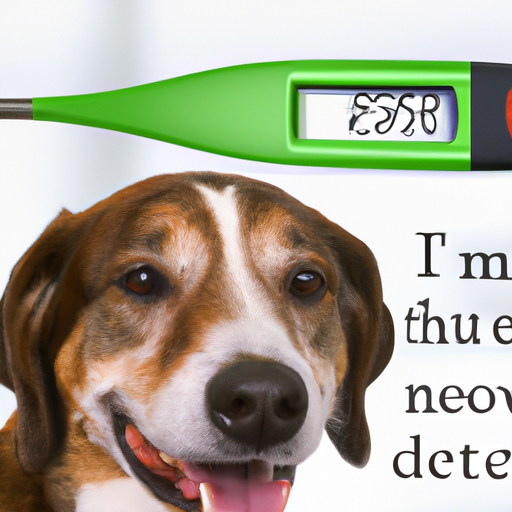As a caregiver, you always want to make sure your dog is in the best health possible. One way to monitor their well-being is by understanding their normal body temperature. Here’s everything you need to know about a dog’s normal temperature.
H2: Understanding a Dog’s Normal Body Temperature
Unlike humans, a dog’s normal body temperature is higher. On average, a dog’s temperature ranges between 101 and 102.5 degrees Fahrenheit (38.3 and 39.2 Celsius). This range is considered normal, but like humans, a dog’s body temperature can fluctuate slightly throughout the day.
H2: Factors Influencing a Dog’s Body Temperature
Several factors can influence a dog’s body temperature:
- Exercise: Physical activity can increase a dog’s body temperature.
- Size and Breed: Smaller dogs and certain breeds can have different normal body temperatures.
- Age: Puppies and older dogs might have slightly different normal temperatures.
- Environmental Factors: Weather and climate can affect a dog’s body temperature.
H2: How to Take a Dog’s Temperature
Taking your dog’s temperature at home can be done using a digital thermometer:
- Prepare the Thermometer: Lubricate the thermometer with petroleum jelly for easy insertion.
- Position Your Dog: Have your dog stand or lay down on their side.
- Insert the Thermometer: Gently insert the thermometer into your dog’s rectum about one inch.
- Wait for the Reading: Wait until the thermometer beeps, then remove and read the temperature.
H2: What to Do if Your Dog’s Temperature is Abnormal
If your dog’s temperature is outside the normal range, it’s important to take action:
-
High Temperature (over 102.5 degrees Fahrenheit): This could indicate a fever or overheating. Ensure your dog is hydrated and in a cool environment. If the temperature doesn’t decrease, contact your vet.
-
Low Temperature (below 99 degrees Fahrenheit): This could be a sign of hypothermia. Warm your dog with blankets and a warm (not hot) water bottle. If their temperature doesn’t increase, contact your vet.
H2: Frequently Asked Questions (FAQs)
Q: Can I use a human thermometer to take my dog’s temperature?
A: Yes, a digital rectal thermometer designed for humans can also be used for dogs.
Q: What are signs my dog might have a fever?
A: Signs might include lethargy, shivering, loss of appetite, or coughing.
Q: Can I use an ear thermometer to take my dog’s temperature?
A: Yes, but rectal readings are considered more accurate.
Q: What should I do if my dog’s temperature is consistently abnormal?
A: Contact your vet immediately for a consultation. They may need to run tests to identify any underlying issues.
Remember, as a caregiver you play a crucial role in your dog’s health and well-being. Understanding and monitoring their normal body temperature can be an essential tool in ensuring they live a long and healthy life.



